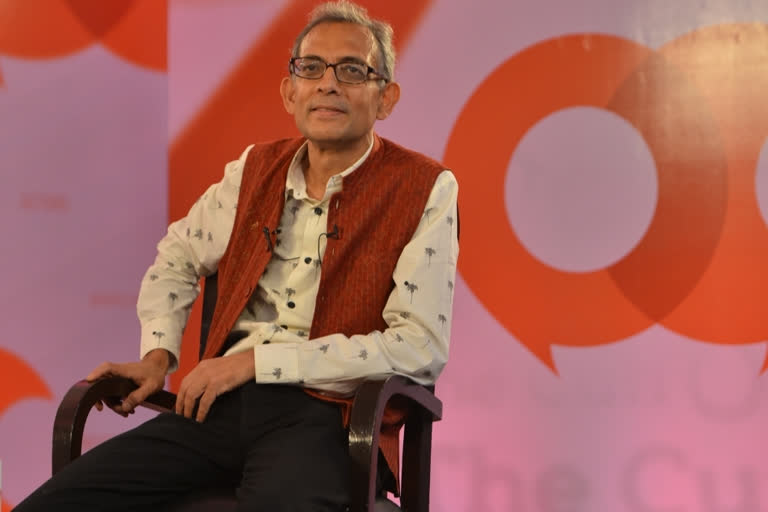Jaipur: India needs a better opposition which is the heart of any democracy and the ruling party should embrace that to keep it under check, noted economist and Nobel laureate Abhijit Banerjee said here on Sunday.
Speaking at a session at the Jaipur Literature Festival (JLF), the 58-year-old India-born American economist said there was no correlation between authoritarianism and economic success.
"You can easily argue that Singapore had a successful dictator and can easily come back and talk about Zimbabwe. We can talk about this ad nauseum at some level authority is an illusion," he said.
"India needs a better opposition. The opposition is the heart of democracy and the ruling party should want a better opposition to keep it under check," Banerjee said.
The Indian-American innovative MIT economist, his wife Esther Duflo and Harvard professor Michael Kremer jointly won the 2019 Nobel Economics Prize "for their experimental approach to alleviating global poverty".
Elucidating on the ways to ameliorate poverty, he said there was no silver bullet, but many silver pallets.
Read:Tricolour unfurled at Shaheen Bagh on Republic Day
"Poverty, like cancer, is many problems. There are many diseases. Some people are educated poor, some are heath poor and some asset poor. You have to figure out what is missing. Trying to solve everything with one action is unviable to work and never does work," he said.
Banerjee also challenged the dogma that if the poor people are given money they waste it, become lazy and fall back into poverty. He advocated that the people living in abysmal poverty should be encouraged by giving them assets and freebies.
"There is so much prejudice about the abilities of the poor. Give the very poor some assets. Not lend, but give them an asset. Maybe a cow, some goats or trinkets to sell, then you look at what happens to these people after 10 years. They will be 25 percent richer, they will be healthier and happier. It encourages them to keep trying and they work harder than the people who didn't get the assets," he said.
"It is sustainable. We have calculated the rate of return on the investment. In India, it is 400 percent. Net income that it generates is four times the amount you put in. The same experiment was done in Bangladesh for 10 years. It has been exactly the same there," he said, giving references from his work.
